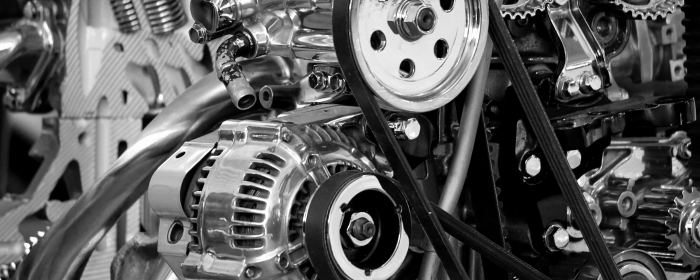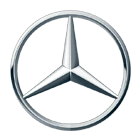
What is horsepower?
When it comes to cars and engines, one term that frequently takes centre stage is "horsepower." Whether you're an automotive enthusiast or a casual driver, you've undoubtedly heard the term being thrown around in conversations and specifications of vehicles. But have you ever wondered what exactly horsepower means and how it relates to the performance of an engine?
In this blog, we will delve into the intriguing world of horsepower, exploring its origins, and its significance in the realm of automotive engineering. So, keep reading to find out more.
Uncovering the Origin
To truly appreciate what horsepower (HP) represents today, we must turn back the wheels of time to the 18th century. It was during this era that the concept of horsepower was conceived by an ingenious engineer named James Watt.
In his pursuit to market steam engines to potential buyers, Watt needed a relatable unit of measurement to quantify the power output of his machines. Drawing inspiration from his observations of horses working in coal mines, he devised the term "horsepower." By comparing the work done by a horse to the work done by his steam engines, Watt established a benchmark that people could comprehend.
Horsepower Explained
Horsepower is a unit of measurement that quantifies the power output of an engine or motor. It serves as an indicator of how much work an engine can perform within a specific time frame.
In the context of automotive engines, horsepower represents the ability of the engine to generate power for propelling the vehicle. Higher horsepower ratings indicate greater power output, leading to improved acceleration and higher top speeds. Also, adequate horsepower is important for passing and overtaking other vehicles on the road. When you need to quickly accelerate and manoeuvre around slower traffic, higher horsepower enables you to execute these manoeuvres more effectively. So, horsepower is a crucial metric used by manufacturers, car enthusiasts, and performance-oriented drivers to evaluate the capabilities and potential speed of a vehicle.
It is important to note that horsepower is not the sole factor determining overall performance. Torque, weight, aerodynamics, and other factors also contribute to a vehicle's performance characteristics. Additionally, different regions and industries may use alternative units, such as brake horsepower (bhp), metric horsepower (PS), or kilowatts (kW), which require conversion for accurate comparison.
BHP vs HP
While both BHP and HP refer to the power output of an engine, there are subtle distinctions between the two. Horsepower (HP) is a general term used to describe the power output of an engine. It represents the rate at which work is done, typically measured in foot-pounds per minute or watts. On the other hand, Brake Horsepower (BHP) is a specific measurement of engine power. It refers to the power output measured at the engine's crankshaft, before any power losses occur due to the transmission, drivetrain, or other components. Brake horsepower is typically measured using an engine dynamometer, which provides a precise measurement of the power produced by the engine alone.
The reason for the distinction between HP and BHP lies in the losses that occur in transferring power from the engine to the wheels. The power losses can vary depending on factors such as friction, heat dissipation, and mechanical inefficiencies. By measuring brake horsepower, engineers can obtain a more accurate representation of the engine's power output without factoring in these losses.
In practice, brake horsepower tends to be slightly higher than HP because it excludes the losses associated with auxiliary components. When manufacturers advertise the horsepower rating of a vehicle, they often refer to BHP unless otherwise specified. This allows consumers to compare the power output of different engines on an equal footing.
Torque vs Horsepower
Torque and horsepower are two essential metrics used to describe the performance characteristics of an engine. While they are related, they represent distinct aspects of an engine's capabilities.
Torque is a measure of the rotational force an engine generates. It is often described as the "twisting" or "turning" force generated by the engine's crankshaft. In practical terms, torque determines an engine's ability to overcome resistance and perform tasks such as accelerating a vehicle from a standstill or towing heavy loads. Engines with higher torque output can deliver stronger acceleration and better pulling power. Click here to find out more about torque in cars.
Horsepower, as discussed earlier, is a measure of power output. It represents the rate at which work is done or the engine's ability to perform a certain amount of work within a given time. Horsepower is often measured in units such as horsepower (hp), kilowatts (kW), or brake horsepower (bhp). Horsepower provides a broader perspective on an engine's overall performance capabilities, including its ability to achieve high speeds.

What is a good horsepower for a car?
The ideal horsepower for a car depends on several factors, including the vehicle's intended use, size, weight, and desired performance. There is no one-size-fits-all answer to what constitutes a "good" horsepower, as it varies greatly depending on individual preferences and requirements. However, here are some typical guidelines:
Everyday Driving: For everyday commuting and regular driving on city streets and motorways, a typical range of 100 to 200 horsepower is sufficient. This power level provides adequate acceleration, merging capability, and overall performance for most common driving situations.
Performance and Sporty Driving: If you have a passion for spirited driving, enjoy faster acceleration, and desire a more dynamic driving experience, you may want to look for vehicles with horsepower ranging from 300 to 400 or more. Sports cars and high-performance vehicles often fall into this range, delivering exhilarating acceleration and top speeds.
SUVs: When it comes to larger vehicles like SUVs, a good horsepower range varies depending on their purpose. For standard SUVs used for everyday driving and light hauling, a range of 200 to 300 horsepower is generally considered adequate. However, if you require more towing power or off-road capability, you might opt for vehicles with horsepower exceeding 300.
Supercars: For enthusiasts seeking extreme power and performance, supercars boast horsepower well above 400, often reaching into the range of 600, or even 700 horsepower.
Do electric vehicles have horsepower?
Yes, electric cars do have horsepower, although the term is used slightly differently compared to traditional internal combustion engine (ICE) vehicles. In an electric car, horsepower refers to the power output of the electric motor or motors that propel the vehicle.
In an electric vehicle (EV), the electric motor generates torque, which is the rotational force responsible for acceleration. The power output of the motor, combined with the rotational speed, determines the horsepower. Electric motors are known for delivering high torque from a standstill, resulting in swift acceleration.
When it comes to comparing horsepower between electric and ICE vehicles, it's important to consider that the power delivery of an electric motor is different from that of a combustion engine. While ICE vehicles often have higher peak horsepower ratings, electric cars can provide immediate and consistent power throughout the entire RPM range, resulting in impressive performance.
As we bring our exploration of horsepower to a close, we hope you have found this article interesting and informative. From its humble origins as a unit of measurement based on the work of horses to its modern-day application in evaluating engine performance, horsepower remains a vital metric that shapes our driving experiences. We have discovered that horsepower is more than just a number on a spec sheet. It represents power, speed, and the relentless pursuit of automotive performance.
About The Author: Charlotte Kennedy
Charlotte joined the GB Vehicle Leasing team around 6 years ago starting out as an apprentice and is now being a key member of our marketing team.
Find Out More About CharlotteLatest Posts

Free Nationwide Delivery Explained
Learn more about free convenient delivery...

Cupra Tavascan Review: All The Highlights
The Cupra Tavascan has arrived, and...

Kia EV3 Review UK
Meet the Kia EV3, the all-electric...

Dacia Spring UK Review
Here, we take an in-depth look...

Cheap SUVs 2025
Take a look at our picks...



































